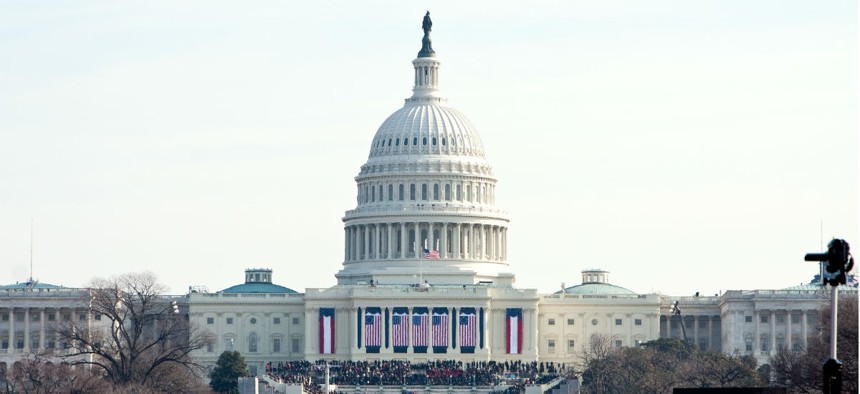Obama Wants This Presidential Transition to Be as Good as 2008’s – Or Better
The White House has started the process of meeting with the remaining 2016 candidates, New York Times reports.
A top White House aide on Wednesday held the first official meeting with representatives of the 2016 presidential candidates to begin the delicate planning of the coming transition, The New York Times reported late Wednesday.
White House Deputy Chief of Staff for Operations Anita Decker Breckenridge, on the eve of a two-day secret session in a Rockefeller mansion overlooking the Hudson River, told the Times that Obama “indicated that he wanted this to be a serious process,” as it was, his aides agree, in 2008 when outgoing President George W. Bush had his team cooperate extensively with incoming Obama staffers.
The president “wants to do the same, if not better, for the next administration,” Breckenridge said. “This is just, at its core, good democracy, good government, and it’s critical.”
Specialists who study presidential transitions have long stressed the importance of long-term planning even before the parties have agreed on their nominees—particularly in the post-9/11 era of terrorist threats.
“Campaigns were always loath to do early or aggressive pre-transition planning for fear that they will be accused of measuring the drapes or being presumptuous, so they ended up doing it at the last minute,” Max Stier, president and CEO of the nonprofit Partnership for Public Service, said in the article. “And the White House doesn’t want to be viewed as lame duck, but they also, as stewards of our government, really need to ensure that the handoff is as thorough and clean as possible.”
Cooperation from the five remaining presidential candidates is extant, but not perfect, the Times found. Democratic front-runner Hillary Clinton, without having named a transition leader, sent a midlevel policy staffer. Her rival Bernie Sanders sent his Senate chief of staff, Michaeleen Crowell, and others. Republican front-runner Donald Trump’s team promised that national political director Michael Glassner was coming. Gov. John Kasich of Ohio assigned Kerry Knott, a former chief of staff to former House Majority Leader Dick Armey, R-Texas, to attend. The Ted Cruz campaign did not respond to the Times reporter’s queries.
The Partnership is one of several good-government nonprofits that are cooperating in presenting recommendations this year for a successful presidential transition. The good-government groups and federal agencies are taking advantage of a law Obama signed last month that clarifies agency roles in the preparations.
Also this week, the Partnership joined with the IBM Center for The Business of Government in releasing another in a series of papers, this one on how arriving members of the new administration should conduct decision-making in a way that will make results stick.
“Transition teams and the new administration should set an expectation among White House councils and agency leaders that articulating effective decision-making processes will be among their earliest priorities,” said the paper, a summary of a November roundtable by G. Edward DeSeve, executive in residence at Brookings Executive Education and co-chair of the National Academy of Public Administration’s Transition 2016 initiative.
“Additionally, they should look for individuals with demonstrated understanding of—and ideally experience in—decisionmaking in multi-stakeholder environments to staff the most critical positions in government.”
Outgoing agency appointees and career staff can help the newcomers in developing talent, building an enterprise approach, improving decision-making and sustaining innovation, the paper said. New leaders “need to articulate clear linkages between vision, mission, goals and objectives as well as the roles that different organizational units play in achieving those goals and objectives.”
Before racing toward decisions, newcomers need to keep the big picture in mind, the paper advised. “Leaders should take into account the complexities of broader governmental systems and the consequences of different actions,” it said. “Deputy secretaries or chief operating officers should lead strategic reviews on progress toward key objectives,” and “agency leaders should also create a central data analytics capability to connect data and programmatic silos.”








